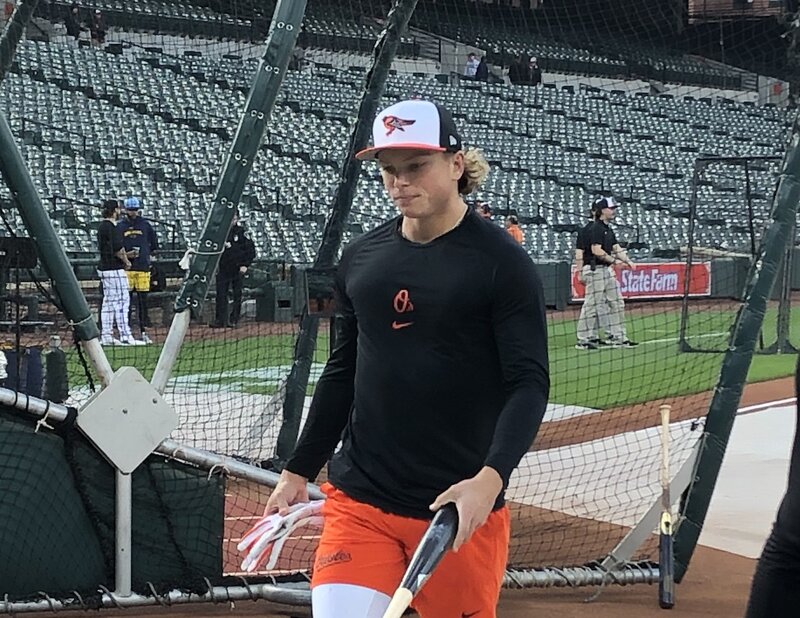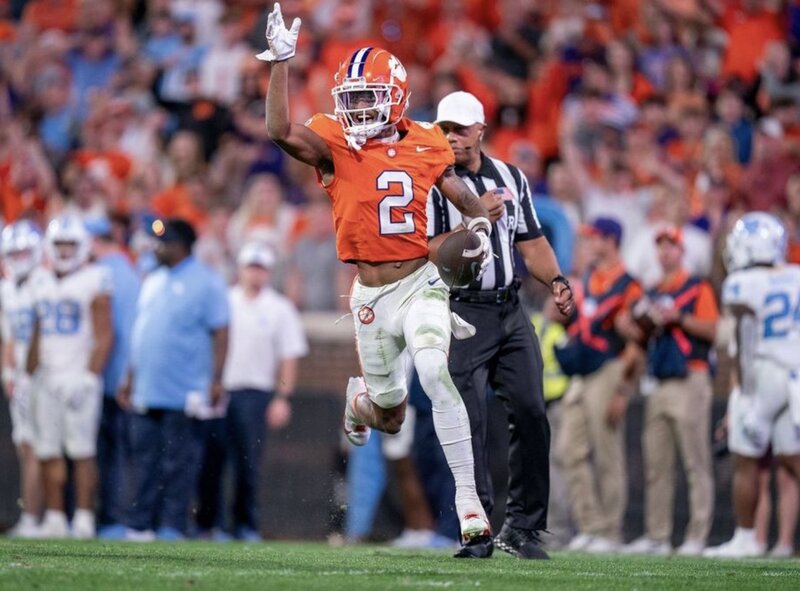What has his life been like over the last five to seven years? Who is this guy? How is he wired? What makes him tick? What are his hobbies? Who are his friends? What is his family like? What does he believe in? Is he passionate about football? What else is he passionate about? How will he handle fame? How does he handle himself on Twitter, with teammates, with coaches? Does he drink? Does he party? What are his priorities? How does he treat women? Is he tough-minded? Does he practice hard every day? How will he handle hard coaching? Can he play through pain? Where does he go in the offseason? Does he have a male figure or a mentor in his life?
“There is meaning when we say, ‘A player plays like a Raven.’ A lot of it is the type of player we bring here,” said head coach John Harbaugh. “We look for a certain personality. We look for players who love football and all that comes with it: the preparation, the lifting of weights, the physicality, the teamwork, the fast practices – all of that. We like players who get after it, who enjoy hanging with teammates. We love aggressive, fair-minded men. We want players who play tough, but play with class –. players who lift their teammates to higher levels. That’s what we’re about. That’s who we are.”
Simply put, the Ravens want their best players and leaders to be their best people.
Ted Marchibroda set the tone in 1996 when he told Phil Savage he wanted players with a “football temperament.” Since then some have called it “playing like a Raven” or “The Ravens Way” or any number of monikers that assemble the 53 Mighty Men of John Harbaugh, but the franchise definitely has a code and a set of keys that get them excited about a college player.
Tough. Physical. Smart. Disciplined. Good character. Big. Fast. Strong. Durable. Consistently competes.
These are the words Newsome wants to see on profiles from his scouts.
And then there’s the adversity and “football character.”
Does he have accountability in locker room? Will he be honest with teammates and coaches? Is he a stand up guy? And, more importantly, if he did something stupid when he was 16 will he make that mistake again?
Ultimately, is he a good teammate? Will he put the team first?
The Ravens feel like they’ve created a family in Owings Mills. If you are not a good family member, you won’t be around long, and they don’t want you to begin with.
The Ravens are always scouting passion. Scouts aren’t just looking for the plays where a player is involved, they’re taking their eyes off the ball to watch how players move when they are not involved in a play, and they learn whether a guy is going through the motions or competes all the time. Nothing makes a coach angrier than when a player quits on a play.
Or to use Brian Billick’s credo in Owings Mills for nine years: “Those who won’t are no better than those who can’t.”
“We try to find players with a chip, who are motivated, who want to prove everybody else wrong,” DeCosta said. “I think the passionate players and the competitive players end up being the best players, and I think ability sometimes is less important than makeup.”
“[Picking players and the draft] is about improvement [for the team], but it’s also for the fans. It’s also the brand, it’s selling, it’s everything. It’s the lifeblood of this organization, and we take it very seriously. We try to make it a science, we really do. But in the end, it’s probably more of an art than a science. There’s a lot of nuance involved. It’s a big-picture thing. It’s a lot of bits and pieces of information. It’s gut instinct. It’s experience, which I think is really, really important. It’s past things that have happened. It’s memories. And it’s also a little bit of science involved. It all works together like a mosaic, and you just end up doing the best you can.”
The information – science or art – all comes from communication and from people. And those people will create the full story of who the player is when you go to his college campus.
Anyone can put on a piece of football film and see whether the guy can play. What the Ravens are looking for is not as easy to find.
Much like when the CIA went to Iraq and Afghanistan looking for information about where the bad guys are – and were willing to bring big bags of money to find informants — the Ravens scouts go to places like South Carolina State, Morehouse, Nicholls State, Weber State, and yes, Delaware, looking for where the good guys are and oft-times need to trust information from strangers to tell them about a player they might draft. You need to find people with information that you can trust because it’s everyone’s first instinct to just tell you the kid at their school is the greatest guy ever.
You find the strength coach, the head coach, the assistant video guy. You talk to the academic advisor, his position coach and the team’s trainer. You see who his friends are and where he hangs out on campus, or off campus.
Being a scout used to mean being a football evaluator of talent. Being a scout in the NFL in 2013 is as much about being a private investigator, a psychologist, and a journalist attempting to find the “truth” about a 21-year old football player that your owner is about to invest millions of dollars in, and you’re about to stake your professional reputation as a scout to for the next five years on whether or not your gut was right.
Ravens owner Steve Bisciotti doesn’t dabble in almost any aspect of the football operation or the selection of players. But when it comes to picking personnel – the science of it and the art of it – well, that’s how he built his empire at Aerotek, which created his fortune that allowed him to buy the team in 1999. This is the one area of the Ravens football evaluation where he has been most helpful and influential in the methodology used in finding what the fans call players but what he calls employees or partners.
If Bisciotti does have one passion outside of being a helluva salesman, he loves being involved in the yin and yang of communication and relationships. He has emphasized that building relationships at these colleges is critical to getting quality information.































